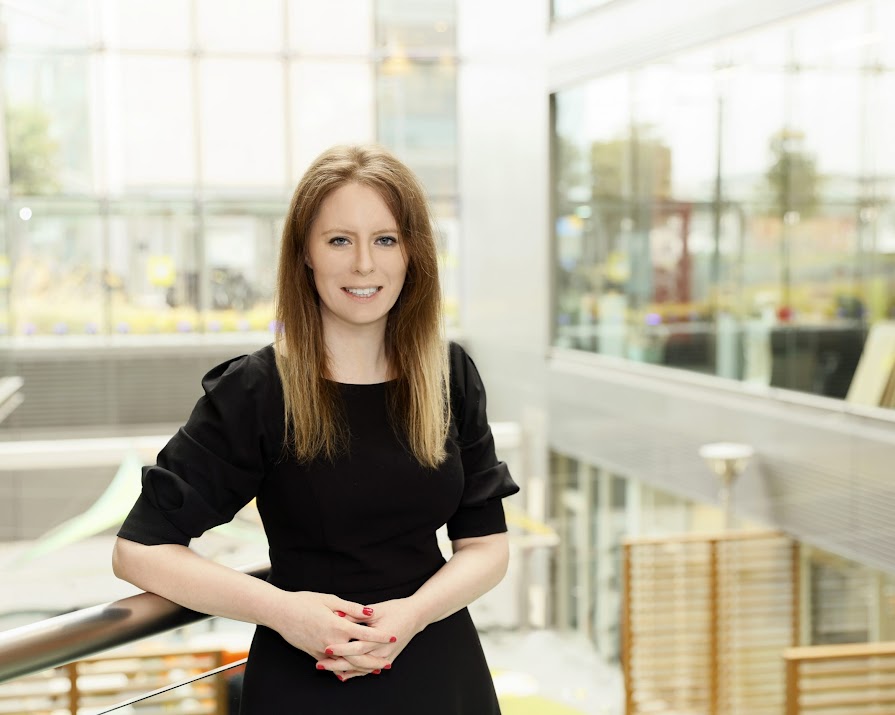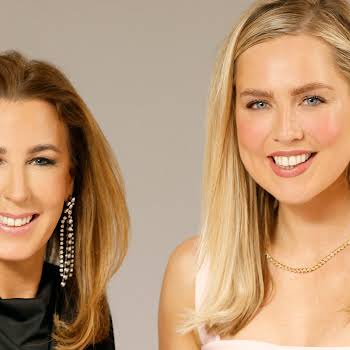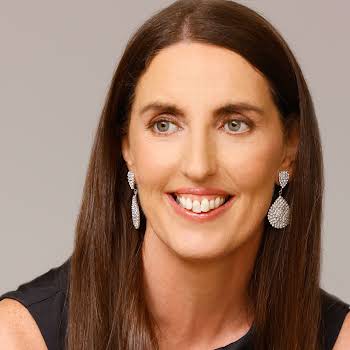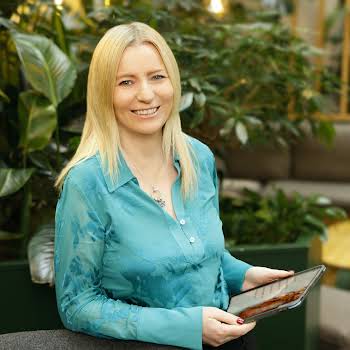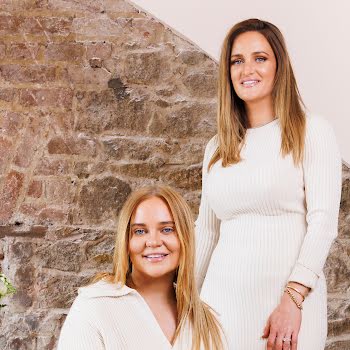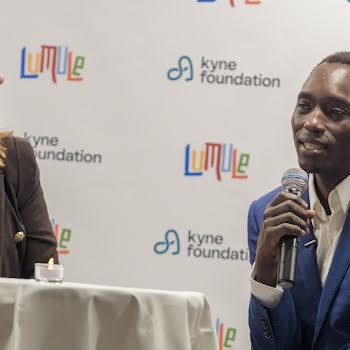
Sponsored
How to sustainably futureproof your business, according to a green finance expert
Sponsored By

By IMAGE
11th Nov 2021
11th Nov 2021
Sponsored By

Irish businesses need to understand the risks and opportunities arising from both climate change and other sustainability issues. Jillian Bolger talks to PwC expert Laura Flood, who is supporting companies to ensure that sustainability is firmly on the fintech agenda.
“The links may not be as obvious,” Laura Flood posits, before explaining why fintech and financial services need to be a part of the climate change conversation just as much as industries such as manufacturing.
A Partner in PwC Ireland’s Banking and Capital Markets team, she joined the firm 15 years ago before sustainability was ever a part of the finance agenda. “When I was in college and doing my training, nobody was looking at environmental issues and nobody was talking about it,” she laughs.
“Part of my role is understanding what’s coming up, what’s going to impact financial services next, and quite a number of years ago it became apparent that sustainability was going to become a very big challenge.”
The power of community
The more she read about it, the more she realised the significant impact it would have on the industry. “I wanted to learn more to put some structure around this. I found a Green Finance course online run by the Chartered Banker Institute in the UK.”
Laura also leaned heavily on her work community. “I’m very lucky to have a global PwC Network. There are subject matter experts all around the world that we are able to draw on at the drop of a hat. Things have also evolved rapidly over the last few years — at PwC we have an extensive training programme with all of our people taking part in ESG training. There is incredible engagement with the subject across all parts of our business.”
Today, Laura is also a Council Member of the Fintech and Payments Association of Ireland (FPAI), which represents the interests of fintech and payments businesses in Ireland, helping them develop the regulatory, commercial and community ecosystem in which they operate. She is also a member of the FPAI’s Regulatory Interest Group.
The big data gap

Advising on a range of issues including financial reporting and emerging issues in financial services regulation, Laura enjoys supporting clients in assessing the impact of environmental, social and governance (ESG) factors on their business and on their financial reporting.
“I believe financial services have a significant role to play from an ESG perspective, directing capital and ensuring that lending is going to transition companies to more sustainable businesses. This is a huge opportunity for financial services and one that I know that financial services is very well placed to embrace.”
Before progress can be made, Laura acknowledges that the big data gap needs to be addressed. “This is a new way of looking at your business; it’s a new way of measuring risk; it’s a new way of considering businesses’ impact on the environment, so one of the key things they are going to have to do is measure progress.
“In order to measure progress, you need to set targets and to set targets you need to understand your baseline. To understand your baseline you need data.”
What’s fintech’s role?
There’s a huge opportunity for fintechs to step in, Laura suggests, and all kinds of industries they can support.
“The fintech industry is really interested in playing a role. Fintechs tend to be reasonably small and quite nimble and while they don’t tend to create massive carbon emissions from their own business, they do have incredible skills to take and deploy new technology to help those that are facing challenges.
“They can solve problems in a quick and efficient manner using new and different techniques that are available.” The FPAI believes that there’s going to be an enormous opportunity for firms to start building and developing products from an ESG perspective and will be launching an ESG Working Group in early 2022 to bring fintechs and financial services together on the ESG agenda.
Global convergence
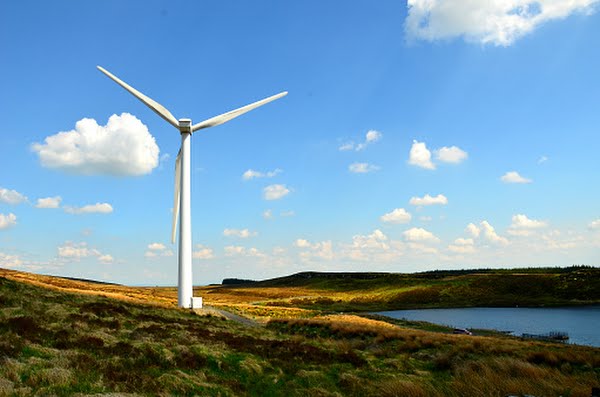
Climate change is an international issue and despite variances around governance and regulation, Laura finds that the topic of ESG work travels very well, with global convergence around how companies are thinking about change.
“We work with a lot of international companies so we’ll often talk to them about the impacts across various parts of their business, which may be located in different parts of the world.”
What can businesses do?
Industry by industry, the impacts vary significantly, but the principles of ESG are broadly similar, with an opportunity for everyone to take stock.
“So go and have a look at your business,” Laura recommends. “Have a look at your supply chains, at your risks and opportunities. Once you’ve had a chance to heatmap where your risks and opportunities are, you need to look at what scale of ambition you have around ESG within your organisation.”
While some organisations will have the capacity and interest to lead the agenda, others might not have, and may adopt a wait-and-see approach. “That in itself requires you to do a number of things, including looking at the expectations of your stakeholders. That might be shareholders, financiers, investors and consumers and their expectations.”
Laura highlights a marked change in individuals’ behaviour stemming from an environmental consciousness. Consumers are revising what they want to do, how they want to spend their money and the type of products and services that they want to consume.
“Businesses that are more ESG conscious and clearly communicate their ESG strategy, are likely to get a better customer response. That’s what we’re hearing and seeing today. It is really important for businesses to understand the impact that they’re making and how they communicate that with their stakeholders.”
Communication is key
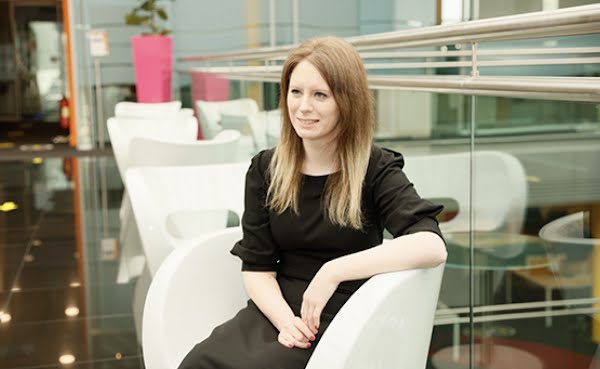
Communication around ESG is essential and Laura believes that any organisation must have clarity around ambition, strategy and purpose.
“So, if you’re reasonably clear as to what you’re doing, why you’re doing it and how you actually live these values day to day, that’s the most important thing.
“I think it has to be crystal clear that the organisation is walking the talk and that actions are being followed through. Ideally, there will be metrics and targets from which you can measure and report to your stakeholders and investors transparently as to how you’re progressing.”
The long game
Change can’t happen overnight and many climate change coversations focus on long-term horizons. “It’s a lengthy process that organisations need to engage in,” Laura counsels, “and every company needs to start somewhere, planning out the next steps. Will things go exactly as you expect? Of course not but it’s having the plan in place to address and deal with the issues as they come up, that’s most important.”
New technology will emerge during the process and new solutions will be developed but Laura’s main drive is helping organisations to first focus on the issue. “Sometimes people are overwhelmed by the enormity of the challenge, because it is a big one, but it’s probably the most important one we’re going to face over the next few years post-COVID.
“As we look forward, climate change is probably one of the biggest things that we’re going to face. It’s something to get started on and a number of small steps will add up over time. Understanding where you are, where your business fits, where your business wants to be, and making a plan to get there, and being flexible in the delivery plan will all be key.”
PwC works with businesses across all sectors to bring insights into climate and sustainability considerations. They aim to future-proof organisations by making them more resilient and sustainable. To find out how they can help your business, see here.











